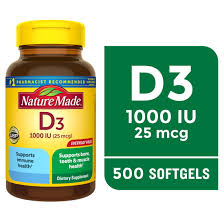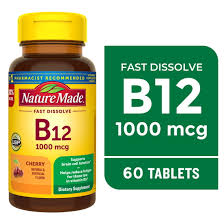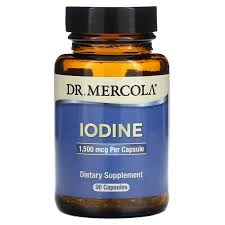Why Supplements That Require Blood Tests Aren’t Always Simple

You know what? Not every pill in the vitamin aisle is as harmless as it looks. While some are safe to take without worry, others are supplements that require blood tests before you even think about swallowing them. Why? Because your body doesn’t just need nutrients—it needs the right amounts.
Too little can make you feel drained, but too much can quietly damage your liver, kidneys, or even your heart. Honestly, guessing with supplements is a lot like seasoning food without tasting it first: sometimes you nail it, but other times, the whole dish gets ruined.
Think of it this way. Would you pour more oil into your car without checking the dipstick first? Probably not. Too much oil can mess up the engine just as badly as not enough. Supplements are no different. Supplement safety and blood tests go hand in hand because they help you avoid topping off something that doesn’t need topping off.
The Essential List of Supplements That Require Blood Tests

Now let me explain something important. Not every supplement requires testing. A basic multivitamin, taken in moderation, usually won’t do much harm. But then there’s the shortlist—the high risk supplements. These are the ones that look innocent in the bottle but can cause trouble if your levels are already normal or high. They’re the supplements to test before taking.
Iron – The Classic Example of Supplements to Test Before Taking

Feeling wiped out? Struggling through the day? It’s tempting to think, Hey, maybe I’m anemic. I’ll just grab some iron. But you know what? Iron is one of the most dangerous supplements that require blood tests.
Too much iron doesn’t just pass through your system. It builds up—in your liver, heart, and pancreas. Over time, that buildup can scar your organs, mess with how they work, and even shorten your life. This condition is called hemochromatosis, and trust me, it’s not something you want to deal with.
And here’s another thing: not all fatigue comes from low iron. It could be thyroid problems, stress, or just poor sleep. That’s why ferritin and hemoglobin tests are crucial. Iron is the poster child for supplements to test before taking, because guessing here isn’t just unhelpful—it’s unsafe.
Vitamin D – A Supplement That Can Be Dangerous Without Testing

Vitamin D gets a lot of love. And fair enough—it’s important for bones, mood, and immunity. But vitamin D is fat-soluble, which means it sticks around in your body. It doesn’t wash out easily like vitamin C. Too much can cause calcium to settle in your kidneys or arteries. Think kidney stones. Think artery hardening. Not exactly what you had in mind when you bought that “immune support” bottle.
That’s why the 25(OH)D blood test is essential. Without it, you’re just guessing. And honestly, guessing isn’t good enough. Vitamin D is a perfect example of supplements that can be dangerous when taken without checking first.
Vitamin B12 – Supplements That Need Blood Work for Accuracy

Everywhere you look, vitamin B12 gets marketed as the “energy vitamin.” But let me explain—B12 isn’t as straightforward as those ads make it seem. High levels aren’t always good. In fact, sometimes they point to liver trouble or other underlying health issues.
This makes B12 one of the supplements that need blood work. Tests like serum B12 or methylmalonic acid (MMA) reveal whether you’re really low—or whether something else is going on. Sure, B12 supplements are helpful for vegans, older adults, or anyone with absorption issues. But taking it blindly? That can hide other problems instead of fixing them. That’s why it’s firmly on the list of supplements to test before taking.
Folate – What Supplements Should I Test For?

Folate, also known as vitamin B9, is essential for cell growth and pregnancy health. But here’s the sneaky part: too much folic acid can actually mask a B12 deficiency. And if that goes unchecked, it can lead to nerve damage that may never fully heal.
That’s why folate is another one of those supplements that require blood tests. By checking folate and homocysteine levels, you know whether you truly need it. And if you’ve ever asked, what supplements should I test for, folate belongs near the top of that list—especially if you’re pregnant or planning to be.
http://👉 NIH Folate Fact Sheet
Calcium – A High Risk Supplement That Needs Testing

Calcium supplements are everywhere, especially for older adults. The pitch is simple: stronger bones, fewer fractures. But here’s the twist. Excess calcium doesn’t just strengthen bones—it can clog arteries and form kidney stones.
A serum calcium test shows if you’re low, normal, or already getting enough from food. And you know what? Most people are. Dairy products, leafy greens, and nuts usually cover it. That’s why calcium is considered a high risk supplement when taken blindly. It’s one of the classic supplements that can be dangerous if you skip testing.
Iodine – Supplements That Can Disrupt Thyroid Health

Iodine is essential for your thyroid, which controls your metabolism, energy, and more. But it’s a balancing act. Too little, and your thyroid slows down. Too much, and it can flip into overdrive or crash completely.
This balancing act makes iodine one of the most delicate high risk supplements. Blood tests like TSH, T3, and T4, along with urinary iodine levels, tell you if supplementation is safe. Without them, iodine is a gamble—and not the fun kind. Honestly, if you’ve ever tried balancing on a seesaw as a kid, you already know how easily things can tip. That’s iodine in a nutshell.
Fat-Soluble Vitamins (A, E, K) – Supplements That Can Be Dangerous in Excess

Here’s the thing about fat-soluble vitamins: they stick around. Unlike water-soluble ones, which flush out, A, E, and K build up in your body. And too much can quickly turn toxic.
Vitamin A in excess can damage your liver. Vitamin E can increase bleeding risks. Vitamin K can interfere with blood thinners. These are prime examples of supplements to test before taking because the line between “enough” and “too much” is razor thin.
Why Nutrient Testing Before Supplements Matters

Let me be blunt: taking supplements that require blood tests without actually checking is like seasoning food without tasting it first. Maybe you get it right. Or maybe you ruin the whole dish.
There are countless real-life cases of people ending up in the ER from iron overload, vitamin D toxicity, or calcium-related complications. And the heartbreaking part? Every single one could have been avoided with a simple test. Whether it’s through your doctor or labs like Quest Diagnostics or LabCorp, testing is easier and cheaper than dealing with the fallout.
So, the next time you find yourself asking, do I need a blood test before supplements?, the answer is yes—for every nutrient we just covered.
The Smarter Way to Handle Supplements That Require Blood Tests
Alright, let’s get practical. Here’s how to handle supplements that need blood work the safe way:
-
Start with a test. Baseline labs are non-negotiable.
-
Work with a professional. Doctors, pharmacists, and dietitians can interpret results better than Google.
-
Recheck regularly. Every 6–12 months, retest your levels. Life changes—so do nutrient needs.
-
Personalize your plan. Only take supplements to test before taking if your labs say you need them.
Think of it like tailoring a jacket. Off-the-rack works for some, sure. But the one that fits you perfectly? That’s the one you’ll actually want to wear. Supplements are the same way.
Food First, Pills Second

Here’s a little tangent: sometimes, the simplest solution is in your kitchen, not a pill bottle. Many supplements that require blood tests are already in everyday foods.
-
Iron in beans, red meat, and spinach.
-
Vitamin D from salmon and safe sun exposure.
-
Calcium in milk, almonds, and kale.
-
Iodine in seafood and iodized salt.
Supplements should back up your diet, not replace it. By focusing on food first, you reduce your reliance on high risk supplements and give your body nutrients it knows how to handle naturally.
Supplements That Require Blood Tests: Final Takeaway
Supplements can absolutely support your health. But let’s keep it real—iron, vitamin D, B12, folate, calcium, iodine, and fat-soluble vitamins are all supplements that require blood tests. Without that step, they can shift from helper to hazard.
So here’s the takeaway. Don’t just copy what a friend is taking. Don’t rely on a trendy TikTok list of “must-have” vitamins. Get tested. Lean on supplement safety and blood tests to make decisions that actually serve your health. And when you’re unsure, ask: what supplements should I test for? You’ve got the answer now.
That way, you’re not just swallowing pills—you’re making thoughtful, informed choices about your body.
Before starting, always ask: Do I need a test first? If the answer is yes, then test. For more tools, education, and interaction checks, you can always visit www.evaluatemymeds.com.
FAQ
Q1: Do I need a blood test before supplements like vitamin D or iron?
Yes—these are high risk supplements that can cause serious harm if taken without testing.
Q2: What supplements should I test for?
Iron, vitamin D, B12, folate, calcium, iodine, and fat-soluble vitamins are the top supplements that need blood work.
Q3: Are multivitamins safe without testing?
Usually, yes. But targeted high-dose nutrients are different—they’re supplements to test before taking.
Q4: Why are supplements that require blood tests risky?
Because excess nutrients can build up, mask other deficiencies, or damage your organs. That’s why nutrient testing before supplements is so critical.
🌐 External Link Suggestions:
-
Vitamin D: NIH – Vitamin D Fact Sheet
-
Vitamin B12: Mayo Clinic – Vitamin B12
-
Folate: NIH – Folate Fact Sheet
-
Fat-Soluble Vitamins: Cleveland Clinic – Vitamin Toxicity
🔗 Internal Link Suggestions:
- Herb & Supplement Interactions Tool → link to your interactions checker page.
- Contact Page → encourage readers to reach out for personalized supplement guidance.
-
Educational Blogs: http://Educational Blogs (like “Are You Taking Too Many Medications?” or “Safe Supplement Use”).









One Response